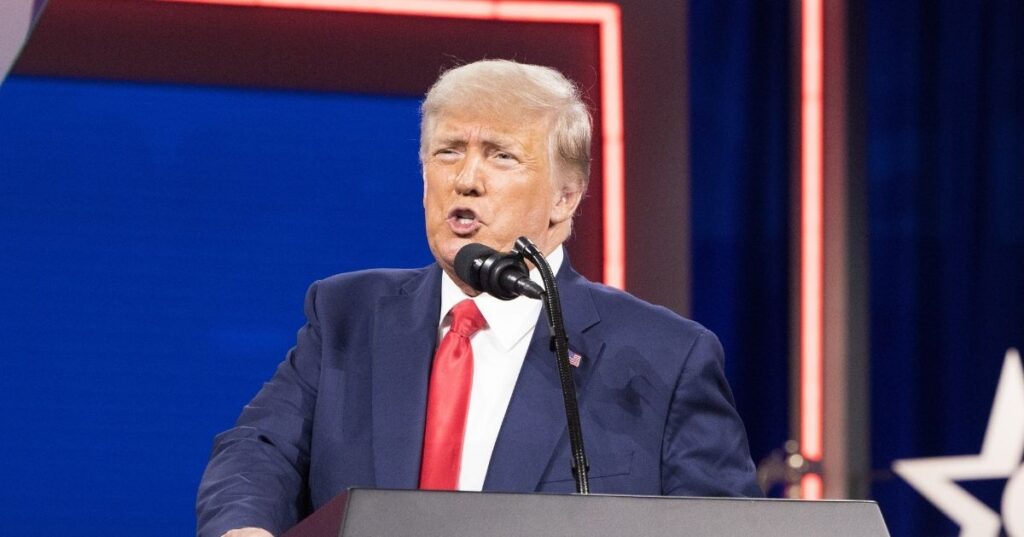A British journalist, Sami Hamdi, was taken into U.S. Immigration and Customs Enforcement custody at San Francisco International Airport after authorities revoked his visa amid allegations tying him to the Muslim Brotherhood, and that arrest has ignited sharp arguments about national security, free speech, and whether government action is driven by facts or politics.
Federal officials say Hamdi’s visa was revoked and he is now facing removal proceedings, a move presented as a straightforward enforcement action to protect the homeland. The arrest happened while Hamdi was passing through San Francisco International Airport, and officials placed him into ICE custody as the case moved toward deportation. For many conservatives this looks like enforcement working as intended: remove dangerous actors who seek to exploit our borders and systems.
DHS spokeswoman Tricia McLaughlin publicly praised the coordinated effort, posting, “Thanks to the work of @Sec_Noem and @SecRubio and the men and women of law enforcement, this individual’s visa was revoked and he is in ICE custody pending removal.” That statement signals how seriously the administration treats suspected ties to extremist networks. Republicans will say praise for law enforcement is appropriate when credible intelligence points to threats on U.S. soil.
Allegations link Hamdi to the Muslim Brotherhood, a network long viewed with suspicion by security professionals for fostering radical ideas under political covers. Investigative voices inside and outside government have called on officials to act when someone with alleged extremist affiliations moves freely in the United States. If the claims are substantiated, critics argue it would show a dangerous pattern of bad actors trying to influence American institutions under the guise of journalism.
Activists and independent investigators have been vocal, with one saying sources within DHS flagged Hamdi as a “Muslim Brotherhood official” while he traveled to Florida for an event. Another activist asserted that Hamdi has traveled nationwide speaking at mosques and universities and training people in disruptive tactics tied to overseas networks. Those dots are worrying to people who view ideological infiltration as a real security problem.
A prominent activist put it bluntly: “Sami Hamdi is not a journalist passing through America — he is a deployed actor from an overseas cadre system that grooms Western Muslims for on-shore mobilization.” That allegation raises the stakes and demands close scrutiny of both travel patterns and organizational connections. The public deserves to know whether those charges rest on solid evidence or on speculation amplified by politics.
Not everyone accepts the detention as a simple win for security, and civil liberties groups have stepped in to contest the move. One organization stated, “Our nation must stop abducting critics of the Israeli government at the behest of unhinged Israel First bigots,” framing the detention as politically motivated rather than safety-driven. From a Republican perspective, those kinds of accusations must be weighed against intelligence assessments and the need for decisive action when threats are credible.
The debate makes clear there is a tension between vigorous enforcement and protecting constitutional protections for speech and association. Conservatives generally push for transparency and strong borders, but they also know enforcement must follow the rule of law and credible evidence. That means agencies should publish the basis for actions whenever possible, while shielding sensitive sources that could be jeopardized by full disclosure.
As DHS and ICE proceed with removal steps, the question will center on proof: can the government demonstrate links between Hamdi and extremist operations that justify deportation? Authorities must be meticulous and open enough to maintain public confidence without compromising intelligence methods. The balance between national safety and civil liberties will shape how this case is judged in the months ahead.
Whatever the outcome, the episode will be used by political actors on both sides as proof of their broader narratives about security and bias. Republicans will argue the case underscores the need for firm immigration and counterterrorism measures, while critics will warn against politicized enforcement. The hottest issue right now is whether evidence supports the enforcement or whether politics drove the action, and that is what people will watch closely.



